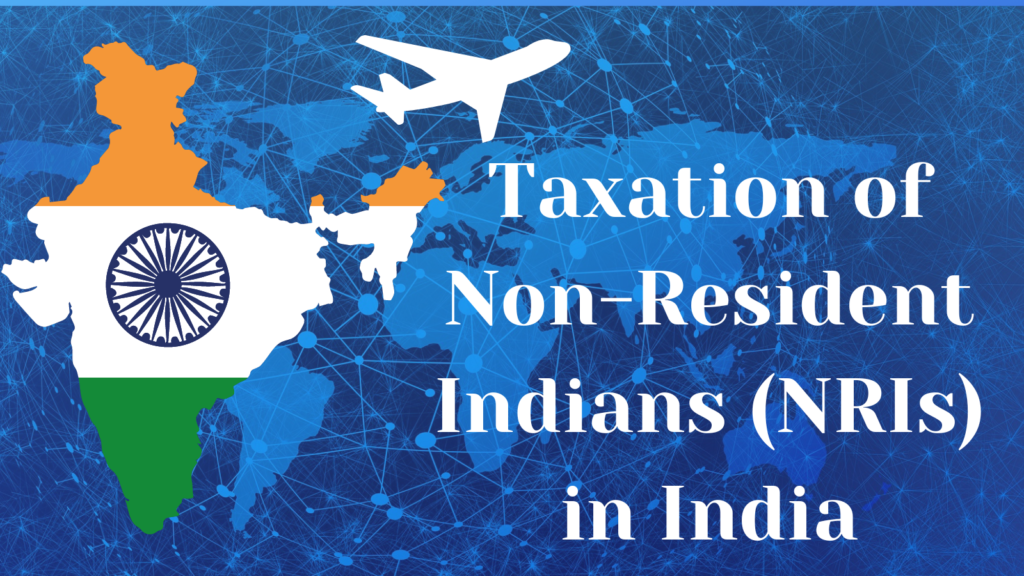NON-RESIDENT Income tax & FEMA

Who is NRI as per FEMA and Income Tax Act?
Let us now discuss more into these regulations and how they decide our residential status.
Who decides your Residential Status in India?
There are two entities which decide your residential status in India.
FEMA (Foreign Exchange Management Act)
FEMA in a simple way will decide where you have to invest in India if you are an NRI. There are regulations under the FEMA law for undertaking transactions with Non-residents i.e inbound or outbound investments, capital account or current account transactions, etc. There are certain restrictions and approval procedure covered in the regulation which a Non-resident has to comply with at the time of undertaking any such transaction.
Income Tax Act
Income Tax Act will decide how the income from various investments will be taxed for an individual.
NRI as per FEMA Act
FEMA law is regulated by RBI and the Central government, enforced by the Directorate of Enforcement (ED), and executed by Authorized person/dealers. Hence, to decide which bank accounts can be opened in India if you are a Non-resident, you need to determine the residential status as per FEMA law.
The definition for non-resident is provided under Section 2 of the Foreign Exchange Management Act. Residence under FEMA is defined as:-
Person Resident in India
A person is a resident in India if his numbers of days stay in India in the preceding financial year for more than 120 days. However, there are exceptions in this. It means, even if a person is resident due to the fact that he was in India for more than 120 days in the preceding year, he will be a non-resident if he satisfies conditions in any of the exceptions.
A person who has gone out of India or who stays outside India:-
- for employment outside India; or
- for carrying on a business or vocation outside India; or
For any other purpose, in such circumstances, as would indicate his intention to stay outside India for an uncertain period.
Person Resident in India (Non-Resident Indian)
If you are in India for 120 days or less during the preceding financial year, then you will be treated as NRI as per FEMA Act. However, there are certain exceptions to this.
If you come to India or stays in India for any purpose other than:-
- For employment in India, or
- For carrying business or vocation in India, or
For any other purpose, in such circumstances as would indicate his intention to stay in India for an uncertain period.
In such a situation, you will be considered Resident in India even if you have stayed in India for less than 120 days during the preceding financial year.
If you are settled abroad and visited India for a purpose other than those mentioned above, then you will still be considered as Resident Outside India (NRI) irrespective of your duration of stay in India.
Few points to note with respect to FEMA Regulations:-
a) If you go abroad for employment, business or vocation, you are NRI as per FEMA from 1st day of your departure. The period of stay in India does not matter in this case. If you left India on October 1st, 2020, then from 2nd October 2020, you will be an NRI as per FEMA rules.
b) Similarly, persons returning to India permanently are considered residents from day 1 of return.
c) If you are a student leaving India to study abroad, you are NRI from day 1 of your departure from India.
d) There is no requirement for continuous stay in India. Your stay in India can be staggered over multiple trips/visits.
e) The financial year is not defined in FEMA. However, it is assumed to refer April 1-March 31 periods.
NRI as per IT (Income Tax) Act
As per the Income Tax Act (Section 6), there are three categories of residential status.
- Resident and Ordinary Resident (ROR)
- Resident and Not Ordinary Resident (RNOR)
- Non Resident Indian (NRI)
As per section 6 of the Income-tax Act, an individual is said to be non-resident in India if he is not a resident in India. You are considered as resident Indian if you satisfy any of the following conditions:
- If he is in India for a period of 120 days or more during the previous year; or
- If he is in India for a period of 60 days or more during the previous year and 365 days or more during 4 years immediately preceding the previous year.

However, with respect to an Indian citizen and a person of Indian origin who visits India during the year, the period of 60 days as mentioned in (2) above shall be substituted with 120 days. A similar concession is provided to the Indian citizen who leaves India in any previous year as a crew member or for the purpose of employment outside India.
The Finance Act, 2020, w.e.f., Assessment Year 2021-22 has amended the above exception to provide that the period of 60 days as mentioned in (2) above shall be substituted with 120 days, if an Indian citizen or a person of Indian origin whose total income, other than income from foreign sources, exceeds Rs. 15 lakhs during the previous year. Income from foreign sources means income which accrues or arises outside India (except income derived from a business controlled in or a profession set up in India).

We’re here to help You
We’d Love
To Hear From You
Schedule a consultation with an accounting and tax expert who is most suitable for your needs.